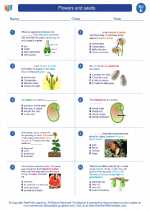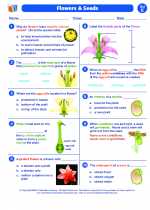Lipids
Lipids are a diverse group of organic compounds that are insoluble in water. They are an essential part of the diet and play important roles in the body, including energy storage, insulation, and the formation of cell membranes.
Types of Lipids
There are several types of lipids, including:
- Triglycerides: These are the most common type of lipid and are a major source of energy for the body.
- Phospholipids: These are a major component of cell membranes and are also involved in cell signaling.
- Steroids: These include hormones such as estrogen and testosterone, as well as cholesterol, which is a vital component of cell membranes.
- Waxes: These are long-chain fatty acids that are esterified to long-chain alcohols and are found in many natural substances, such as beeswax and plant cuticles.
Functions of Lipids
Lipids have several important functions in the body:
- Energy Storage: Triglycerides store energy that can be used by the body when needed.
- Insulation: Adipose tissue, which is rich in lipids, helps to insulate the body and protect it from temperature changes.
- Cell Membrane Structure: Phospholipids are a crucial component of cell membranes, helping to maintain their structure and function.
- Hormone Production: Steroids are involved in the production of hormones that regulate various bodily functions.
Study Guide
Here are some key points to remember about lipids:
- Lipids are organic compounds that are insoluble in water.
- Common types of lipids include triglycerides, phospholipids, steroids, and waxes.
- Lipids play important roles in energy storage, insulation, cell membrane structure, and hormone production.
- Triglycerides are a major source of energy for the body.
- Phospholipids are a key component of cell membranes.
- Steroids are involved in the production of hormones.
- Waxes are found in many natural substances and provide protection.
◂Science Worksheets and Study Guides Fifth Grade. Flowers and seeds
Study Guide Flowers and seeds
Flowers and seeds  Activity Lesson
Activity Lesson Flowers & Seeds
Flowers & Seeds  Worksheet/Answer key
Worksheet/Answer key Flowers and seeds
Flowers and seeds  Worksheet/Answer key
Worksheet/Answer key Flowers and seeds
Flowers and seeds  Worksheet/Answer key
Worksheet/Answer key Flowers and seeds
Flowers and seeds  Worksheet/Answer key
Worksheet/Answer key Flowers and seeds
Flowers and seeds  Vocabulary/Answer key
Vocabulary/Answer key Flowers and seeds
Flowers and seeds  Vocabulary/Answer key
Vocabulary/Answer key Flowers and seeds
Flowers and seeds 

 Activity Lesson
Activity Lesson
 Worksheet/Answer key
Worksheet/Answer key
 Worksheet/Answer key
Worksheet/Answer key
 Worksheet/Answer key
Worksheet/Answer key
 Worksheet/Answer key
Worksheet/Answer key
 Vocabulary/Answer key
Vocabulary/Answer key
 Vocabulary/Answer key
Vocabulary/Answer key

The resources above cover the following skills:
Life Science
All organisms have structures and systems with separate functions. Students can:
Develop and communicate an evidence-based scientific explanation of the role of different organs or structures that are important for an organism's survival - in both plants and animals